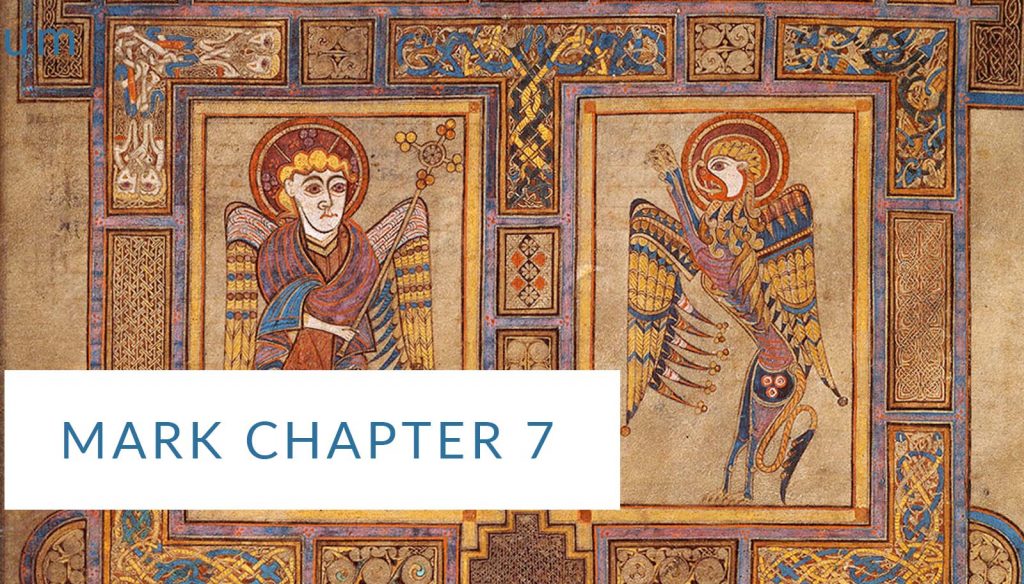This week's readings are all from Mark chapter 7. Click here to see the full reading and a list of each day's readings. Each day's segments of the readings will be posted on this site during the week.
Today's Reading:
After Jesus left there, he went to the region of Tyre. When he went into a house, he did not want anyone to know, but he was not able to escape notice. Instead, a woman whose young daughter had an unclean spirit immediately heard about him and came and fell at his feet. The woman was a Greek, of Syrophoenician origin. She asked him to cast the demon out of her daughter. He said to her, “Let the children be satisfied first, for it is not right to take the children’s bread and to throw it to the dogs.” She answered, “Yes, Lord, but even the dogs under the table eat the children’s crumbs.” Then he said to her, “Because you said this, you may go. The demon has left your daughter.” She went home and found the child lying on the bed, and the demon gone. (Mark 7.24–30 NET)
The previous translation is from the NET Bible translation. Scripture quoted by permission. Quotations designated (NET) are from the NET Bible® copyright ©1996, 2019 by Biblical Studies Press, L.L.C. All rights reserved.
Resources for the Reading
Gospel Parallels
- Gospel Parallels: What Makes Someone Unclean
- Gospel Parallels: The Syro-Phoenician (Canaanite) Woman
- Gospel Parallels: Jesus Heals a Deaf Mute and Many Others
Full Resource Page
Am I correct to think that Tyre and Sidon were not the hub of Jewish culture? Would this conversation happen within hearing distance of not only Jews but Gentiles as well? Although sounding harsh to us today, could Jesus has wanted Gentiles to know that their faith in him could save them? Here also, Jesus heals from a distance. It wasn’t until the woman got home that she realized her daughter was well. I see her running home to check and be sure her daughter was healed and then praising God for the healing.
I am not seeing the post for Mark 7:31-37. Is anyone else having this problem?
